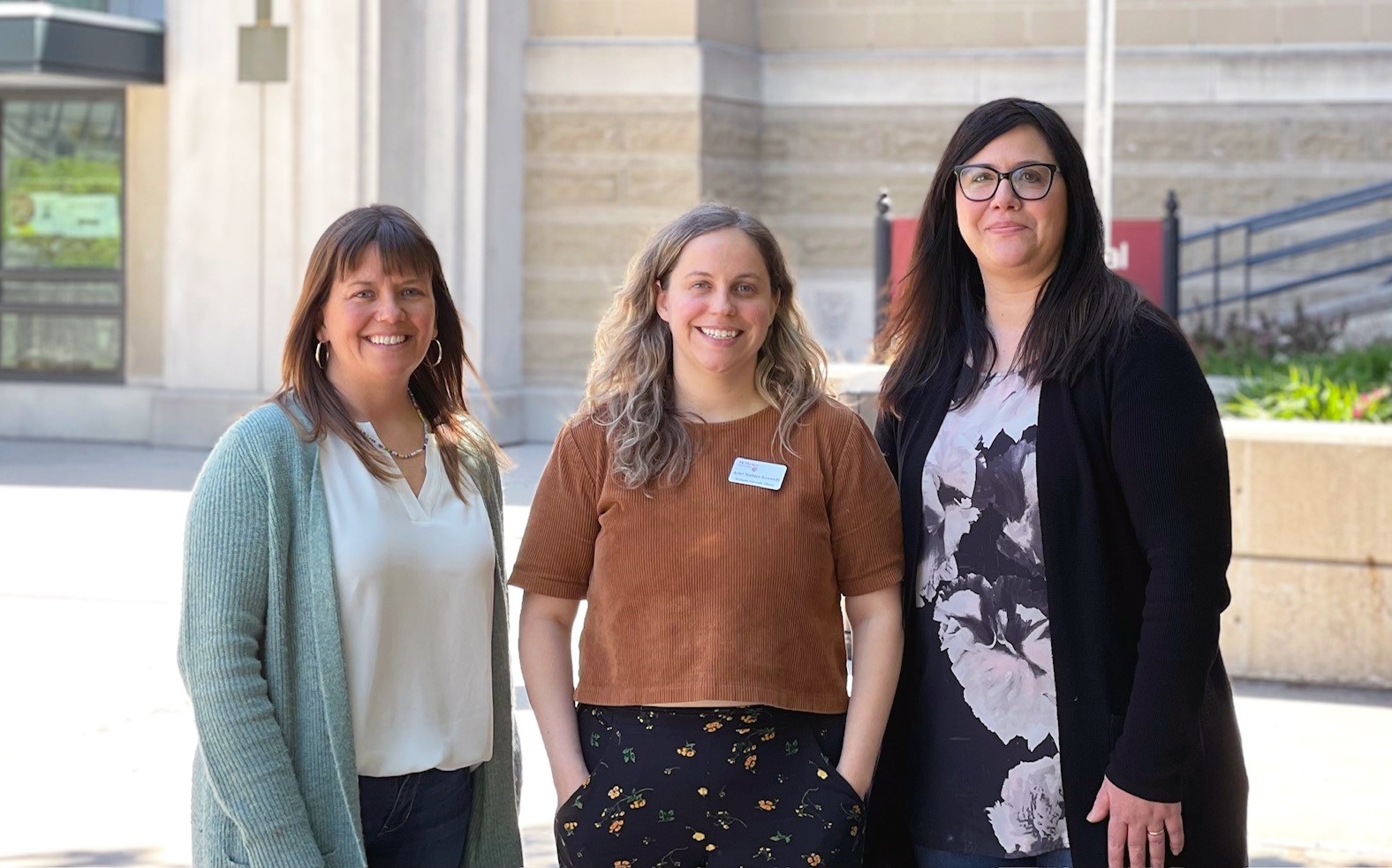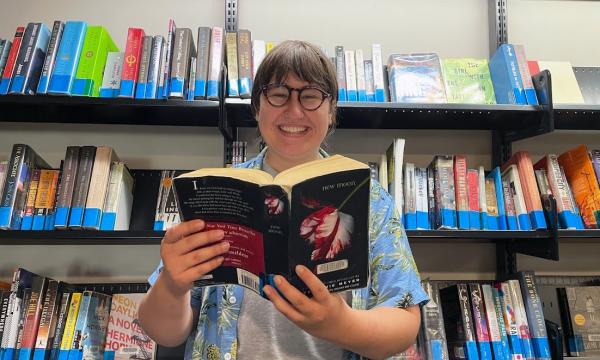
How are post-secondary institutions addressing the use of artificial intelligence (AI) in teaching and learning?
This question was at the centre of a working lunch that brought nine high school teacher-librarians and educators from the Hamilton-Wentworth District School Board and the Hamilton-Wentworth Catholic District School Board to Mills Memorial Library on May 26.
“We were thrilled to hear that our local school board partners were interested in having a conversation about how we’re addressing AI at the post-secondary level and how we’re incorporating it into our practice,” said Ariel Stables-Kennedy, first year experience librarian at McMaster University Library.
The meeting was initiated by Amanda Freeman, manager of System Library Learning Commons at Hamilton-Wentworth District School Board. Freeman says she was motivated to connect with McMaster’s library following their board’s recent launch of an inquiry into the use of AI in the classroom.
“This morning’s discussion was an opportunity for our network of teacher-librarians to learn from McMaster’s approach to AI, specifically as it relates to information learning strategies and academic integrity among students,” said Freeman. “We were pleased to extend the invitation to our counterparts at the Catholic school board, as well.”
Kim Mason, academic integrity officer at McMaster, and Erin Aspenlieder, associate director at the MacPherson Institute, spoke as guest speakers on the growing presence of generative AI in teaching and learning and the university’s response to the matter.
The lunch was followed by a group tour of Mills Memorial Library, H.G. Thode Library of Science and Engineering, and Health Sciences Library.
Apart from the learning experience, the visit offered the opportunity for the group of librarians and educators to reconnect post pandemic, says Freeman.
“In the past, our teacher-librarians would meet with McMaster’s librarians periodically to identify the gaps in research skills and gain a better understanding of how they could prepare secondary students for the transition to post-secondary, if that’s the route they choose,” said Freeman. “Coming out of the pandemic, it was high on our priority list to reinvigorate this existing connection.”
Stables-Kennedy says the relationship is mutually beneficial and part of McMaster library’s community engagement efforts.
“We’re here to act as partners in teaching and learning with the community,” said Stables-Kennedy. “Being able to have open conversations with local educators helps us better understand the educational experiences that first-year students are coming to us with, which informs our strategies for supporting them during their transition to post-secondary.”

